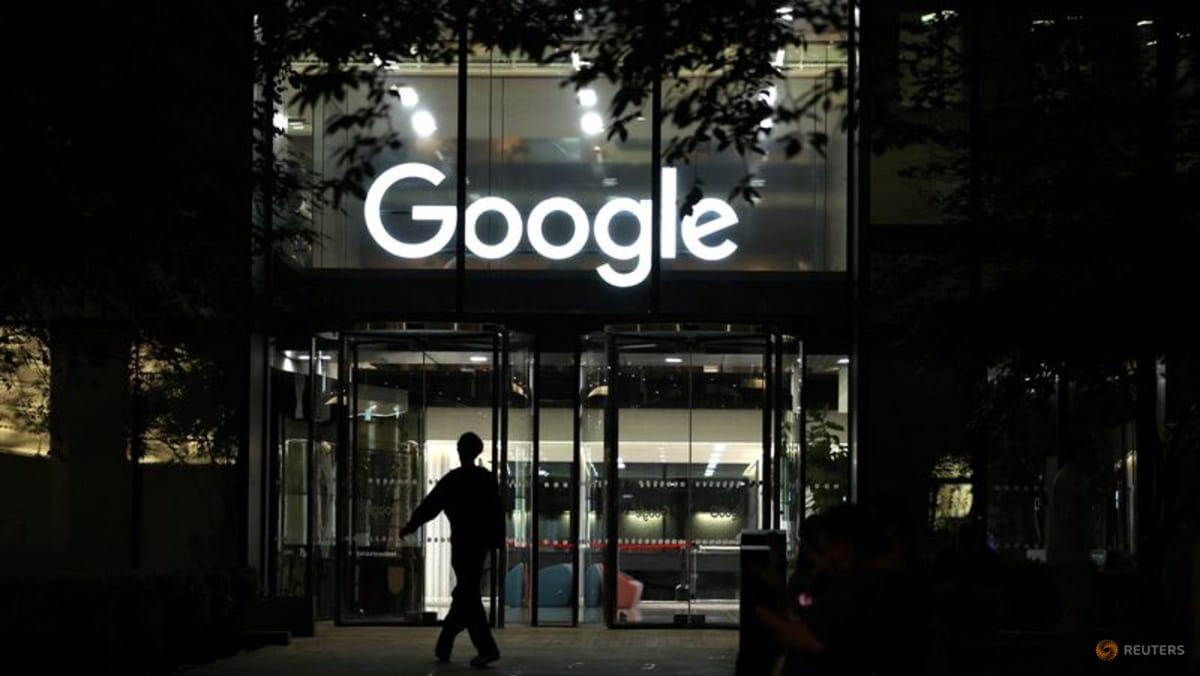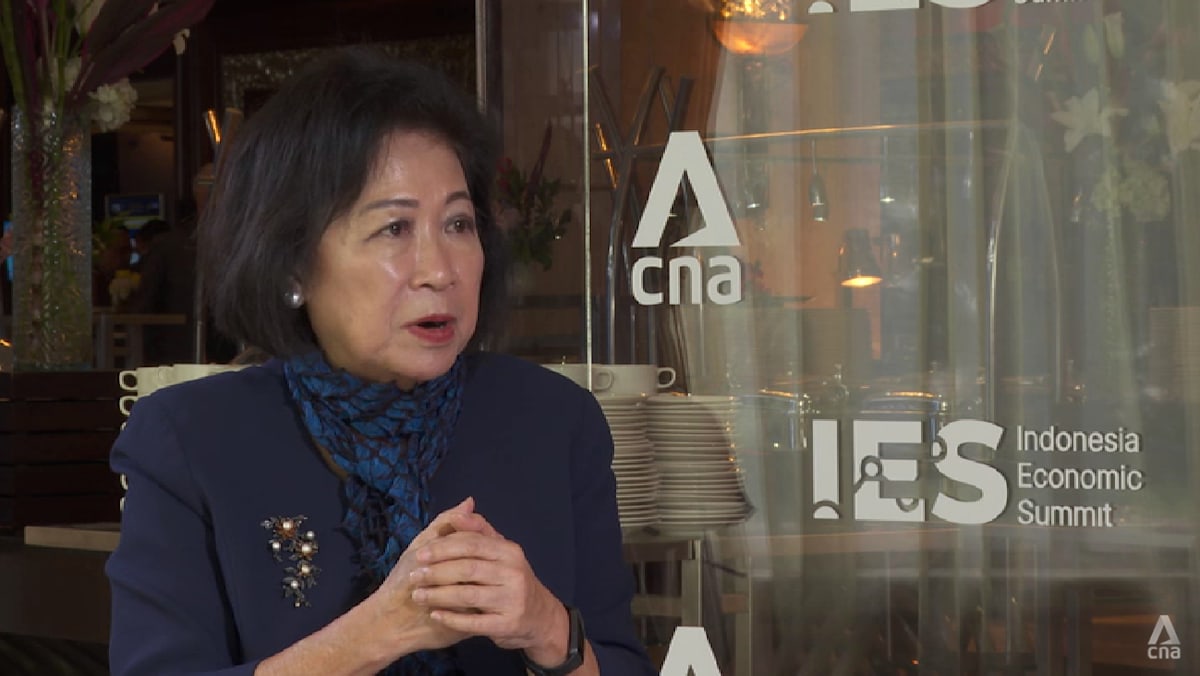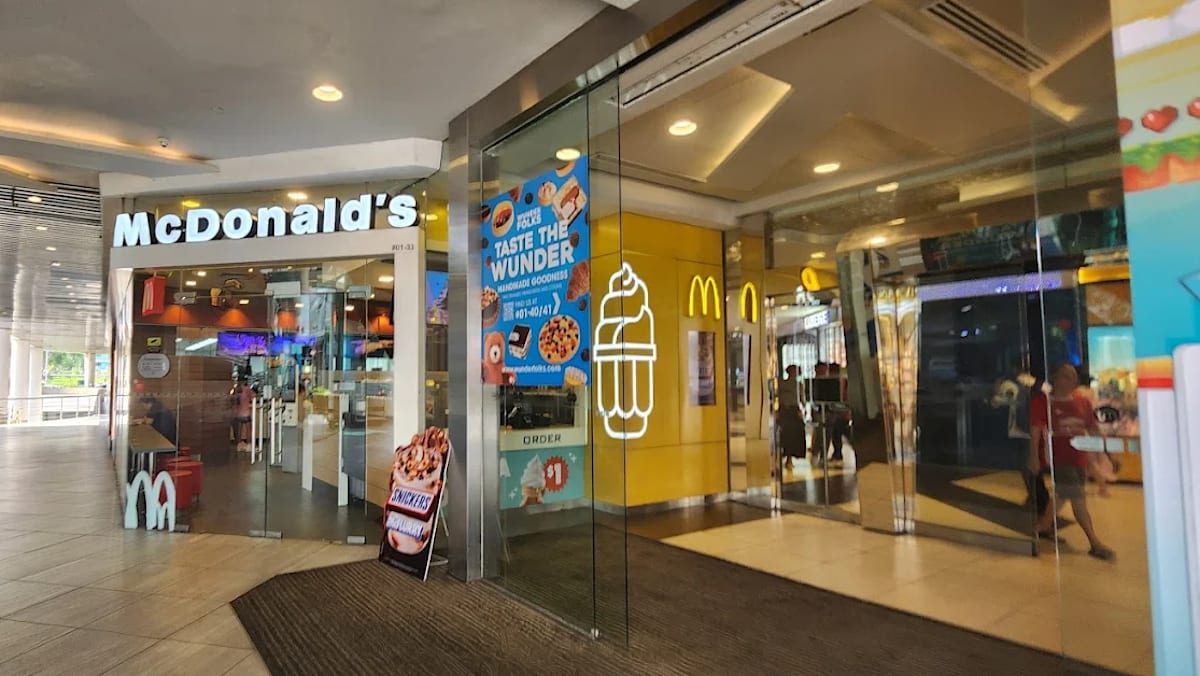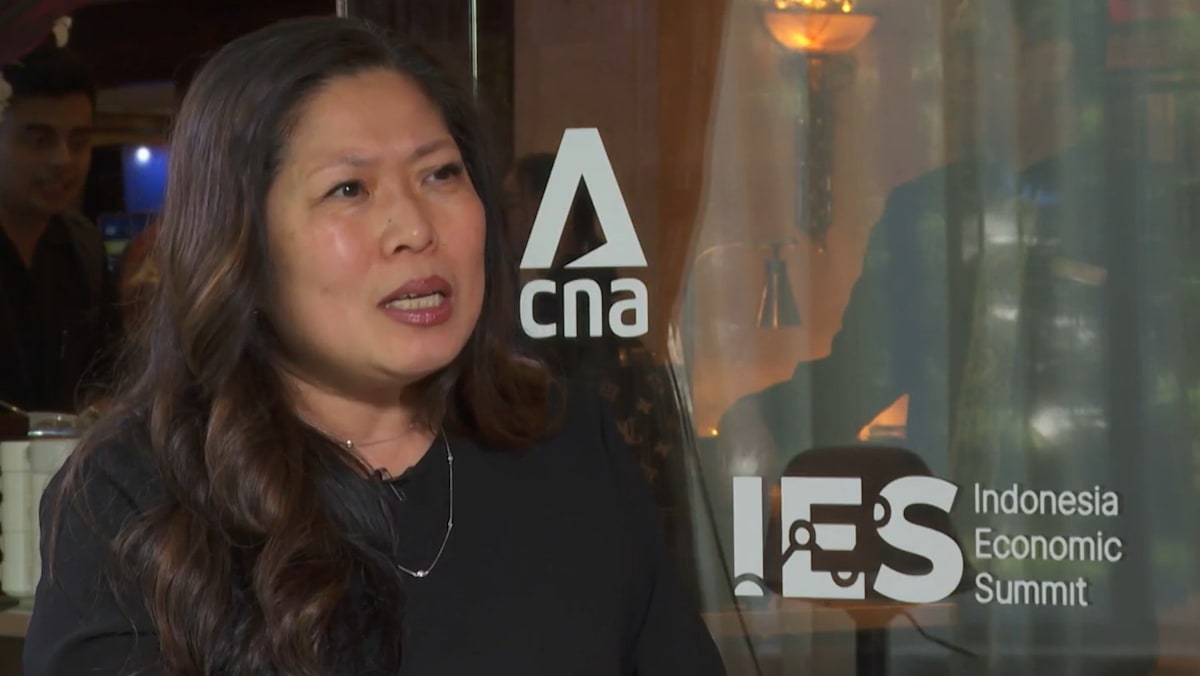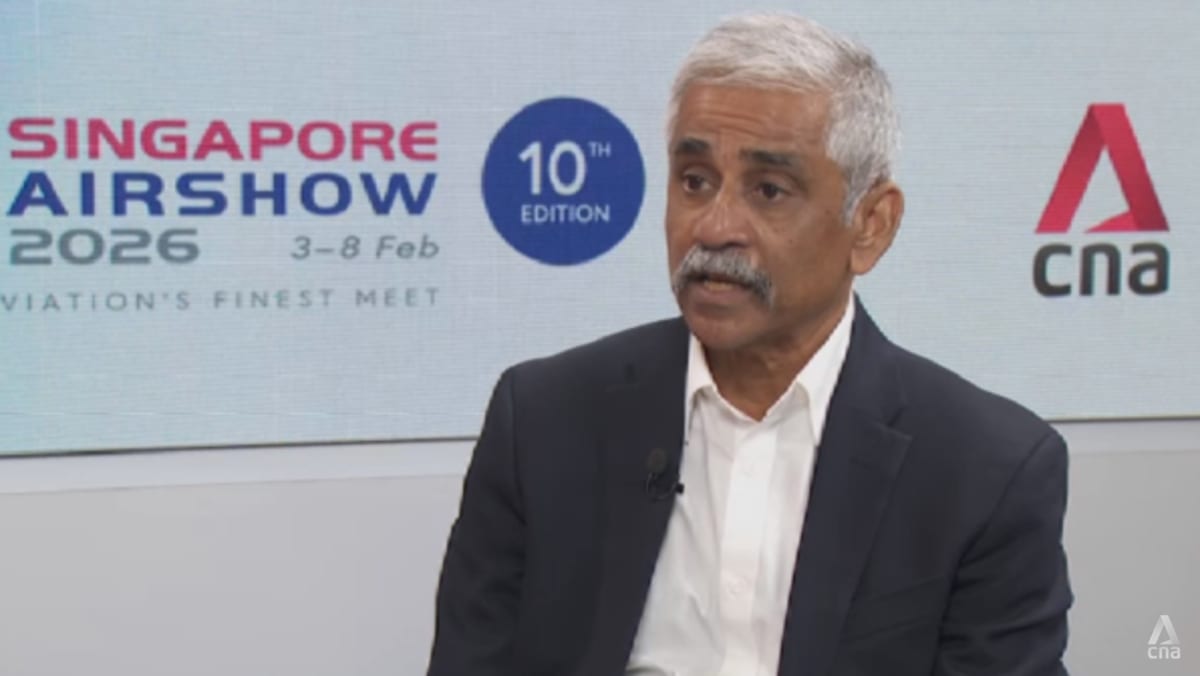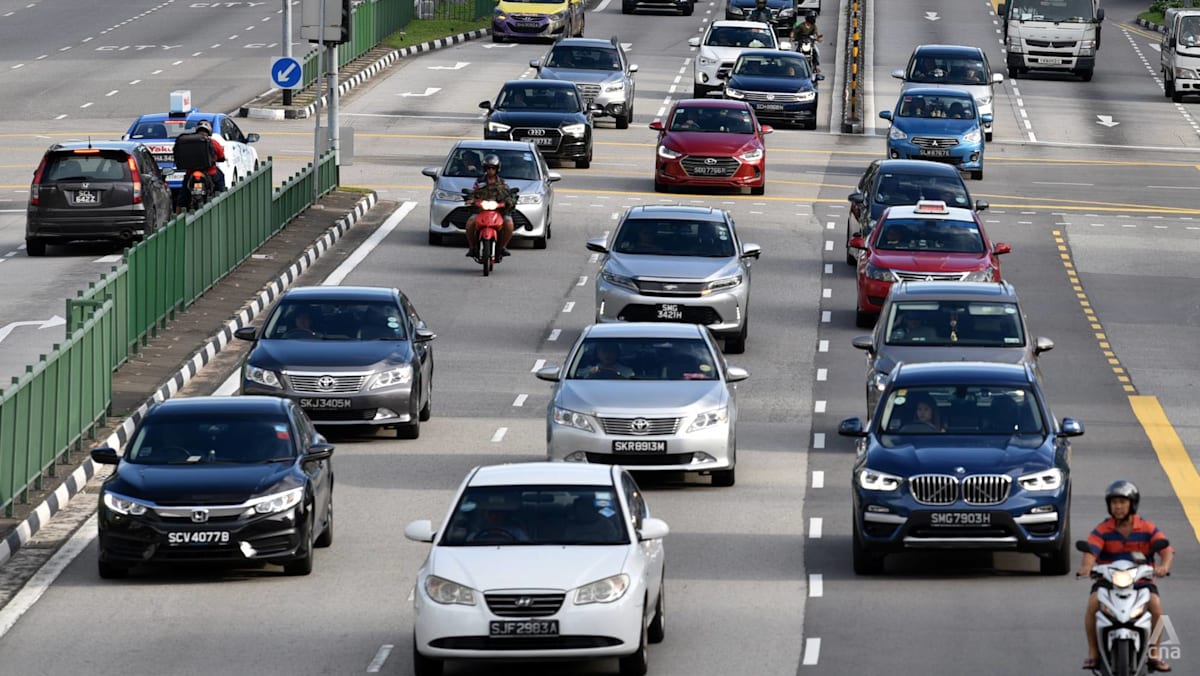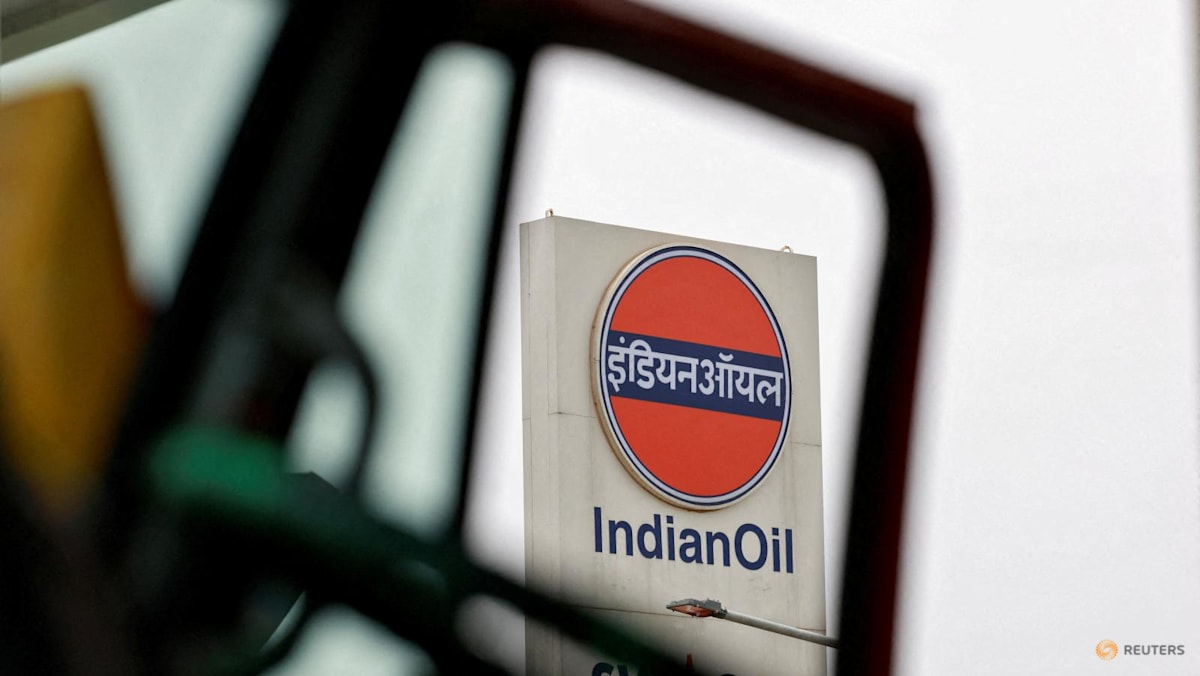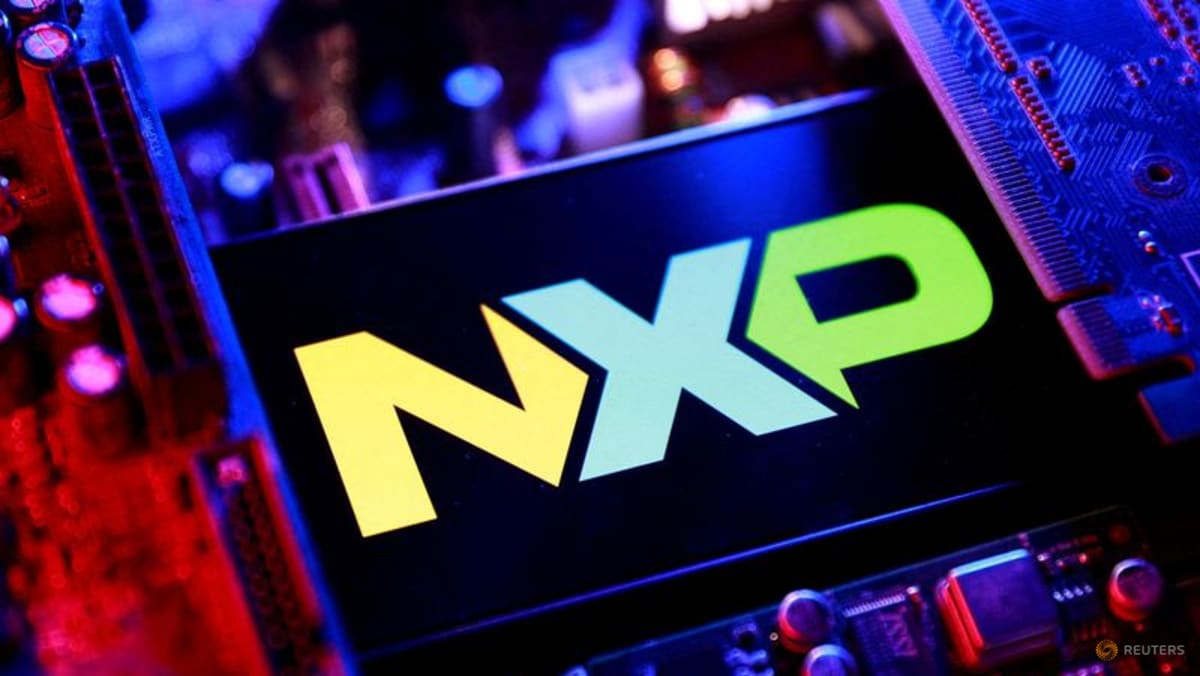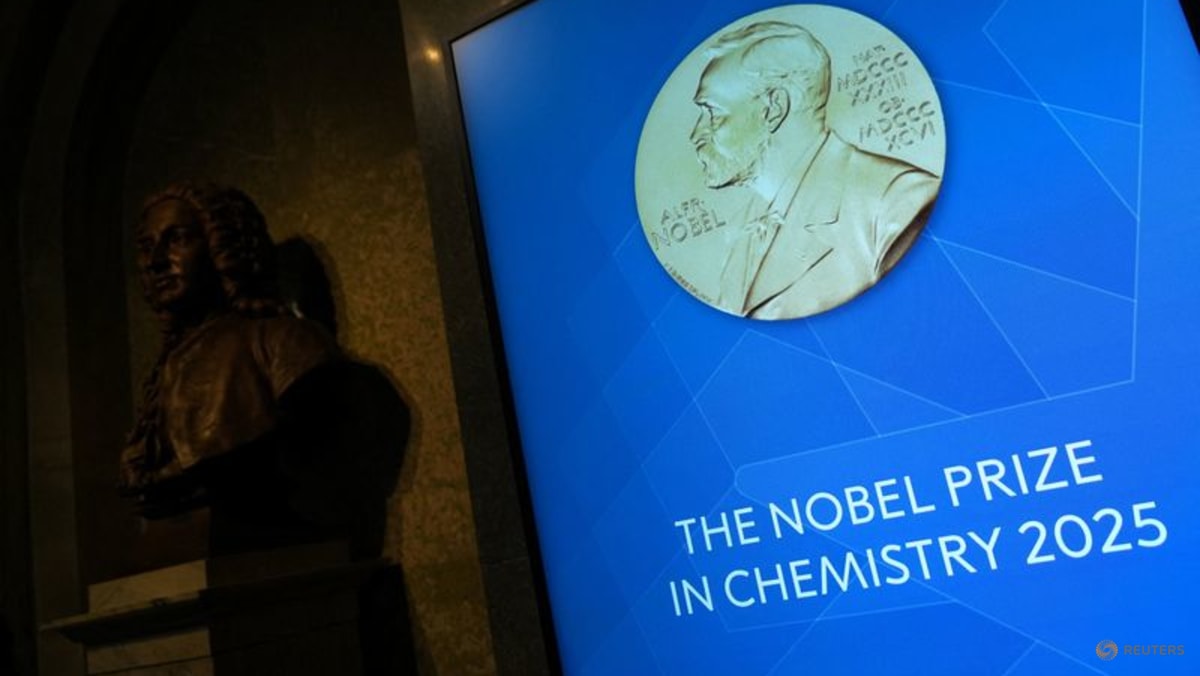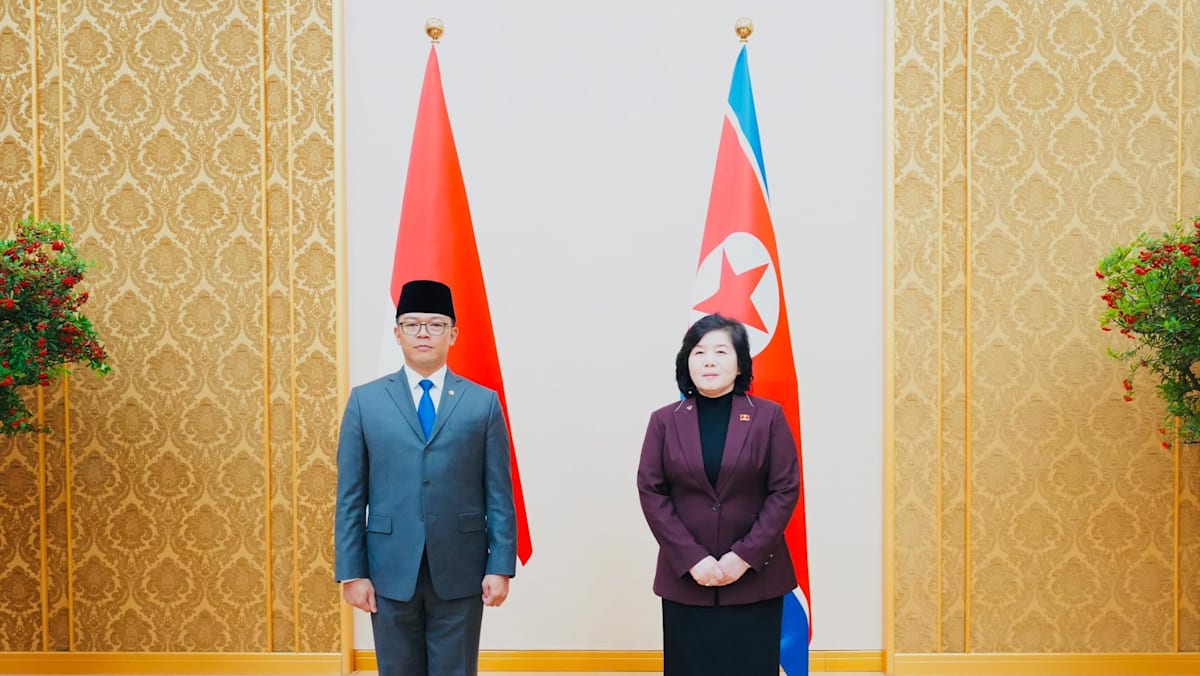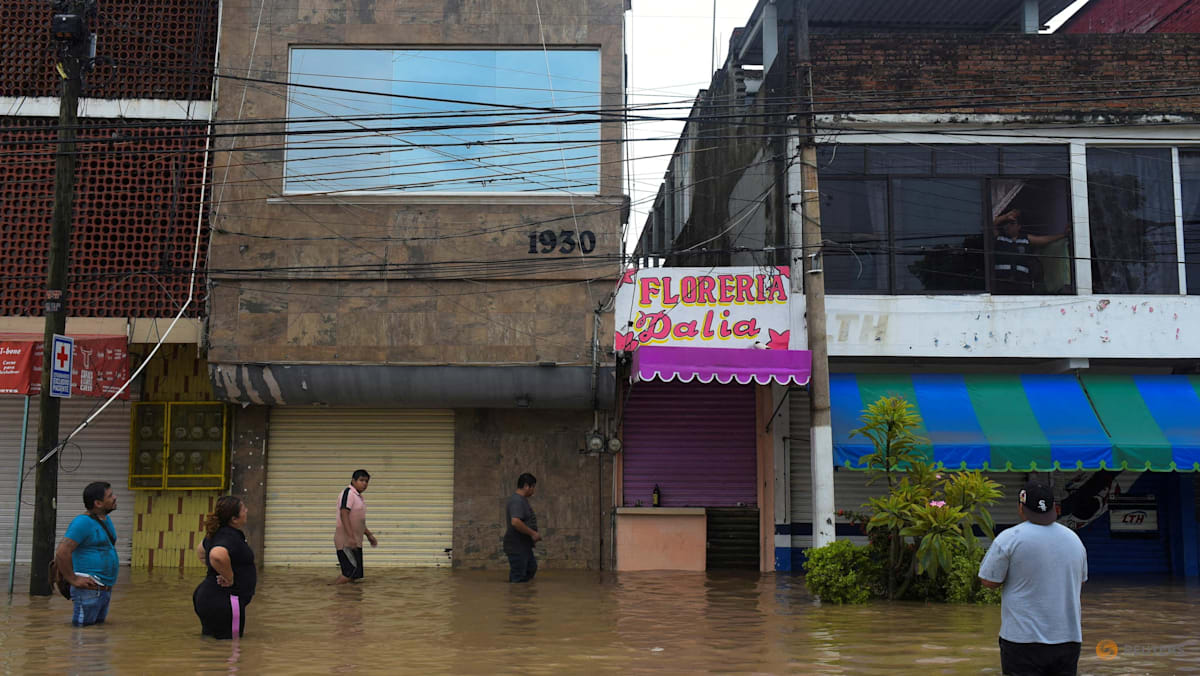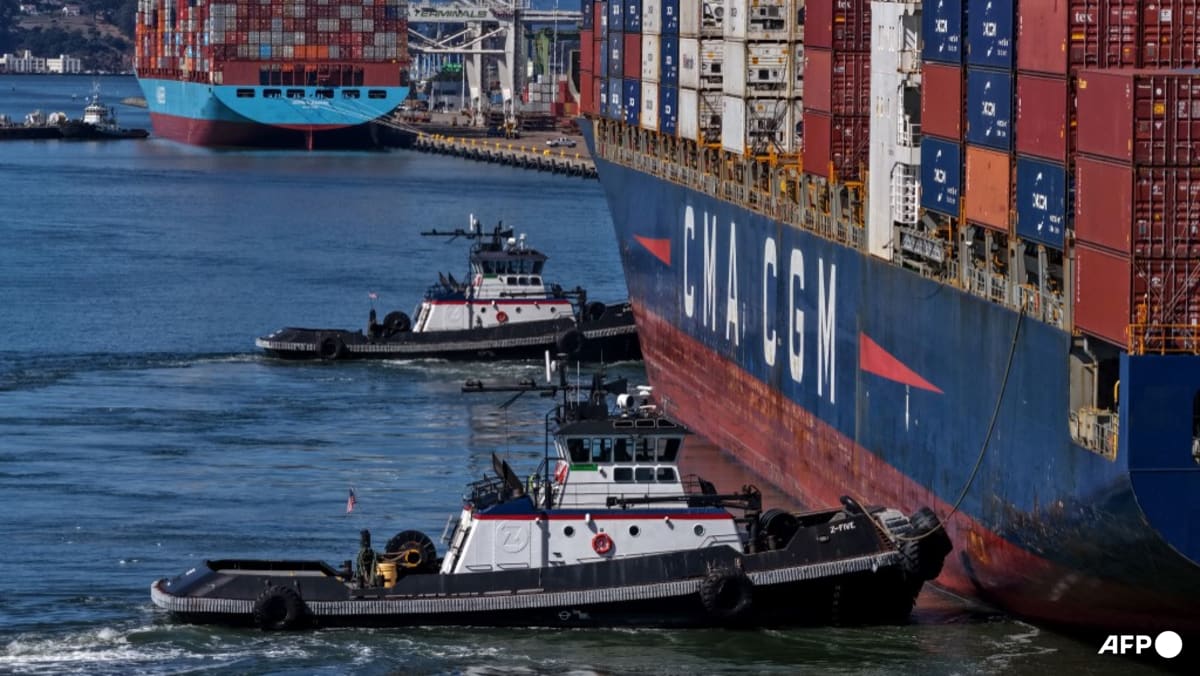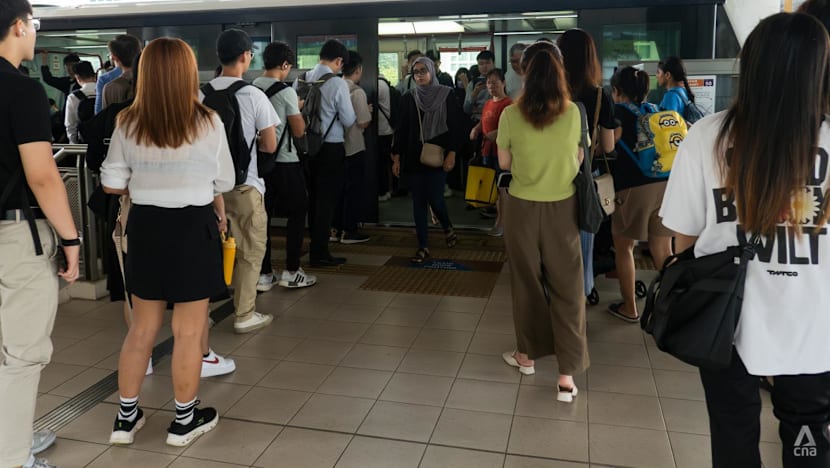
Commuters queuing to board a train at Oasis LRT station heading towards Punggol station on a weekday morning. (Photo: CNA/Nuria Ling)
New: You can now listen to articles.

This audio is generated by an AI tool.
SINGAPORE: From Dec 27, commuters in the northeast region of Singapore who start their weekday journeys at selected train stations during off-peak hours - before 7.30am or between 9am and 9.45am - will not have to pay.
The train stations in this one-year pilot are: Any of the six North East Line (NEL) stations between Punggol Coast and Kovan; as well as any Sengkang-Punggol Light Rapid Transit (LRT) station, announced the Land Transport Authority (LTA) on Saturday (Oct 18).
Also from Dec 27, an existing programme allowing commuters in the northeast to earn fare discounts will be improved – for the second time this year – with a simpler enrolment process and more rewards.
LTA said these moves will help “moderate travel demand” during morning rush hour in the region, and improve the experience for all commuters. In response to queries from CNA, the authority also added that the stations along NEL and the Sengkang-Punggol LRT were chosen as they made up “the busiest segment” of the train network during the morning rush hour.
The changes coincide with a 5 per cent increase in public transport fares from Dec 27. This was announced earlier this week by the Public Transport Council, citing considerations such as the increasing cost of operations and maintenance of the public transport network.
FREE MORNING OFF-PEAK RIDES
No registration is needed for the scheme offering free train rides, as long as commuters tap in and out of the stations using the same fare card or payment mode.
The free travel applies for just the first train ride of a commuter's journey.
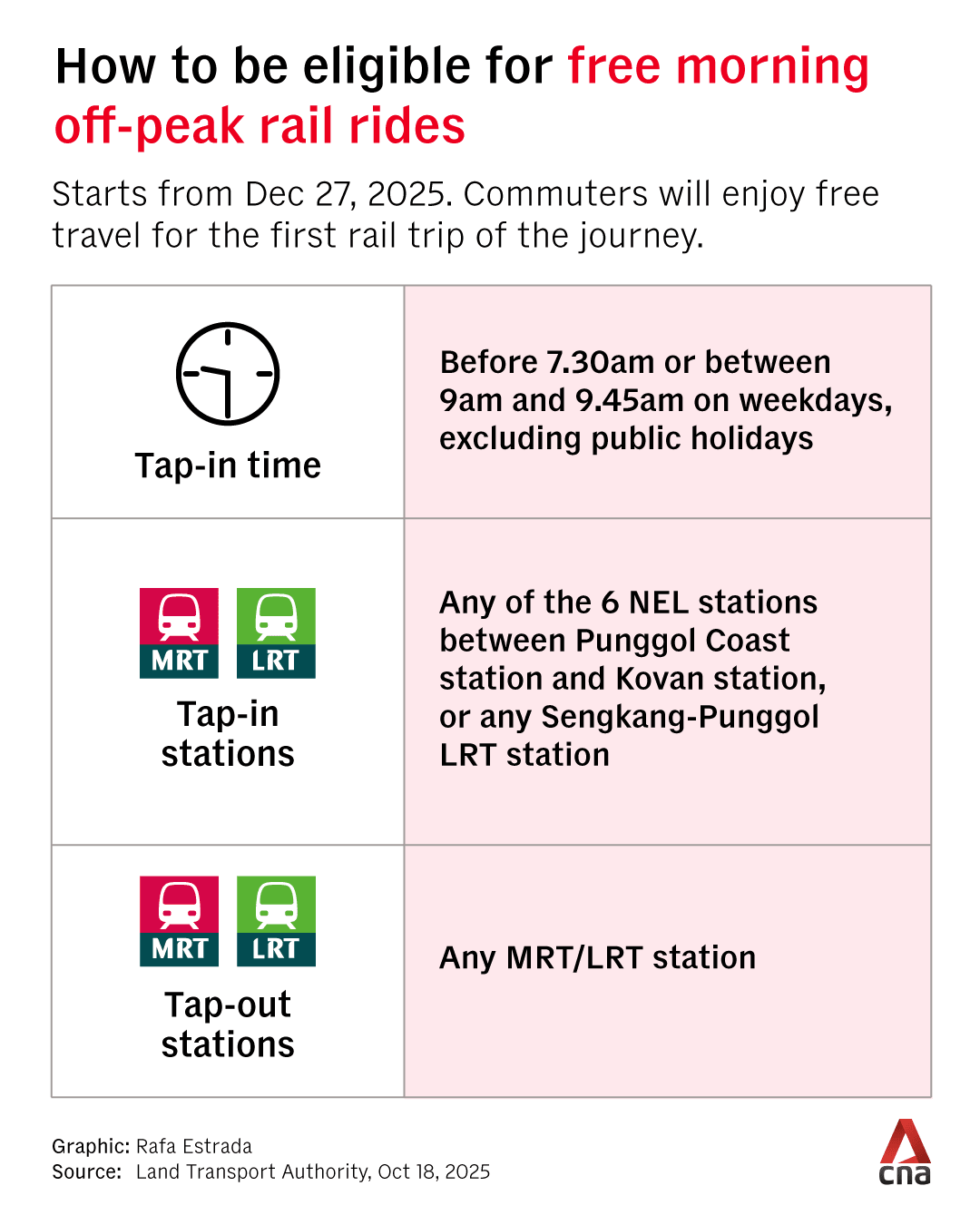
Authorities have previously experimented with trials offering free or discounted public transport rides during off-peak hours.
In 2013, a free pre-peak travel scheme was offered to commuters tapping out at selected train stations in the city centre before 7.45am.
There was also a monthly off-peak pass initiative rolled out in 2015, which allowed unlimited travel on bus and train networks during designated hours.
These two initiatives were discontinued in end-2017 and replaced by an existing one, where commuters can save up to S$0.50 (US$0.39) in fares if they enter any MRT or LRT station before 7.45am on weekdays.
“Through this scheme, we hope to even out travel demand and optimise the efficiency of our public transport network,” an LTA spokesperson said on Saturday, adding that authorities will monitor the effectiveness of the new scheme before deciding on any future adjustments, such as potential revisions to the cut-off timing for eligibility or extensions to other rail lines.
LTA said it would adopt a data-driven approach in deciding on the latter.
This includes studying the effects on the passenger load on NEL and the Sengkang-Punggol LRT line.
From January to September, hourly ridership on the NEL during weekday mornings before 7.30am was about 45 per cent less than during the 7.30am to 9.00am period.
Ridership after 9am was about 40 per cent less than the 7.30am to 9.00am period.
Acting Transport Minister Jeffrey Siow told reporters on Saturday that for now, peak-hour passenger load on the NEL is “not close” to LTA's operating performance standards.
These are used by the authority to assess the levels required for the service quality, safety and key equipment reliability of train operators.
“But we do know that commuters on the North East Line sometimes are unable to get onto the first train or the second train … it doesn't make for (a) fantastic experience,” said the minister, who was speaking to the media at the opening ceremony of Punggol Coast bus interchange.
Mr Siow said the free pre-peak travel scheme in 2013 had achieved a 7 per cent shift of rail trips away from morning peak hours. “If we can achieve a similar shift this time, we would be able to result in a more comfortable commuter experience for those on the NEL.”
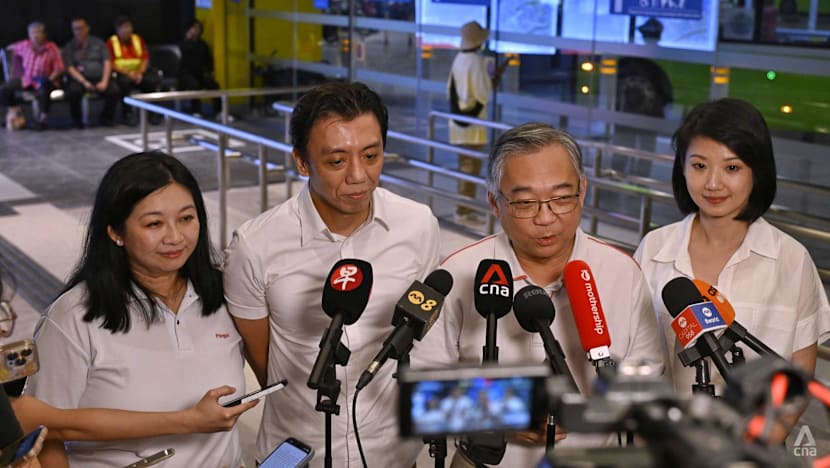 (Left to right) Punggol GRC MP Yeo Wan Ling, Acting Transport Minister Jeffrey Siow, Deputy Prime Minister Gan Kim Yong and Senior Minister of State for Transport and National Development Sun Xueling speaking to the media at the opening of Punggol Coast Bus Interchange on Oct 18, 2025 (Photo: CNA/Wallace Woon)
(Left to right) Punggol GRC MP Yeo Wan Ling, Acting Transport Minister Jeffrey Siow, Deputy Prime Minister Gan Kim Yong and Senior Minister of State for Transport and National Development Sun Xueling speaking to the media at the opening of Punggol Coast Bus Interchange on Oct 18, 2025 (Photo: CNA/Wallace Woon)
Mr Siow was accompanied at the event by the area’s Members of Parliament Deputy Prime Minister Gan Kim Yong, Senior Minister of State for Transport and National Development Sun Xueling and Ms Yeo Wan Ling.
Mr Gan, who is also Trade and Industry Minister, said residents have given feedback that the NEL is “becoming very heavily loaded”, especially during the morning rush hour, due to the growing number of residents in the area and as more people return to the office after the COVID-19 pandemic.
He added that he had been in discussions with authorities on how to address this issue, and had suggested to Mr Siow the possibility of bringing back the free travel programme for off-peak hours.
“We want to continue to work with the LTA, (Ministry of Transport) and Minister Siow to see how we can continue to enhance the connectivity within Punggol,” Mr Gan said.
ENHANCING TRAVEL SMART JOURNEYS
Changes are also afoot for the Travel Smart Journeys programme, which was first launched as a trial in 2020 to ease peak-hour train congestion on NEL by encouraging passengers to take selected express bus services instead.
It was expanded in 2023 to include more buses that ply express routes between housing estates and the city; and enhanced in January with increased discounts of up to 80 per cent on transport fares.
Currently, to be eligible for the programme, passengers must tap in at any NEL station between Punggol Coast and Kovan, or any station along the Punggol and Sengkang LRT lines. They must have done so between 7.15am and 8.45am on at least six working weekdays in the past 30 calendar days.
These criteria will be removed from Dec 27. All commuters will be eligible once they have registered using the SimplyGo app.
LTA told CNA this change was done following a review, which led to the recognition “that a broader participant base could help to ease crowding during the morning peak period and expanding the eligibility would allow more commuters to benefit from this scheme”.
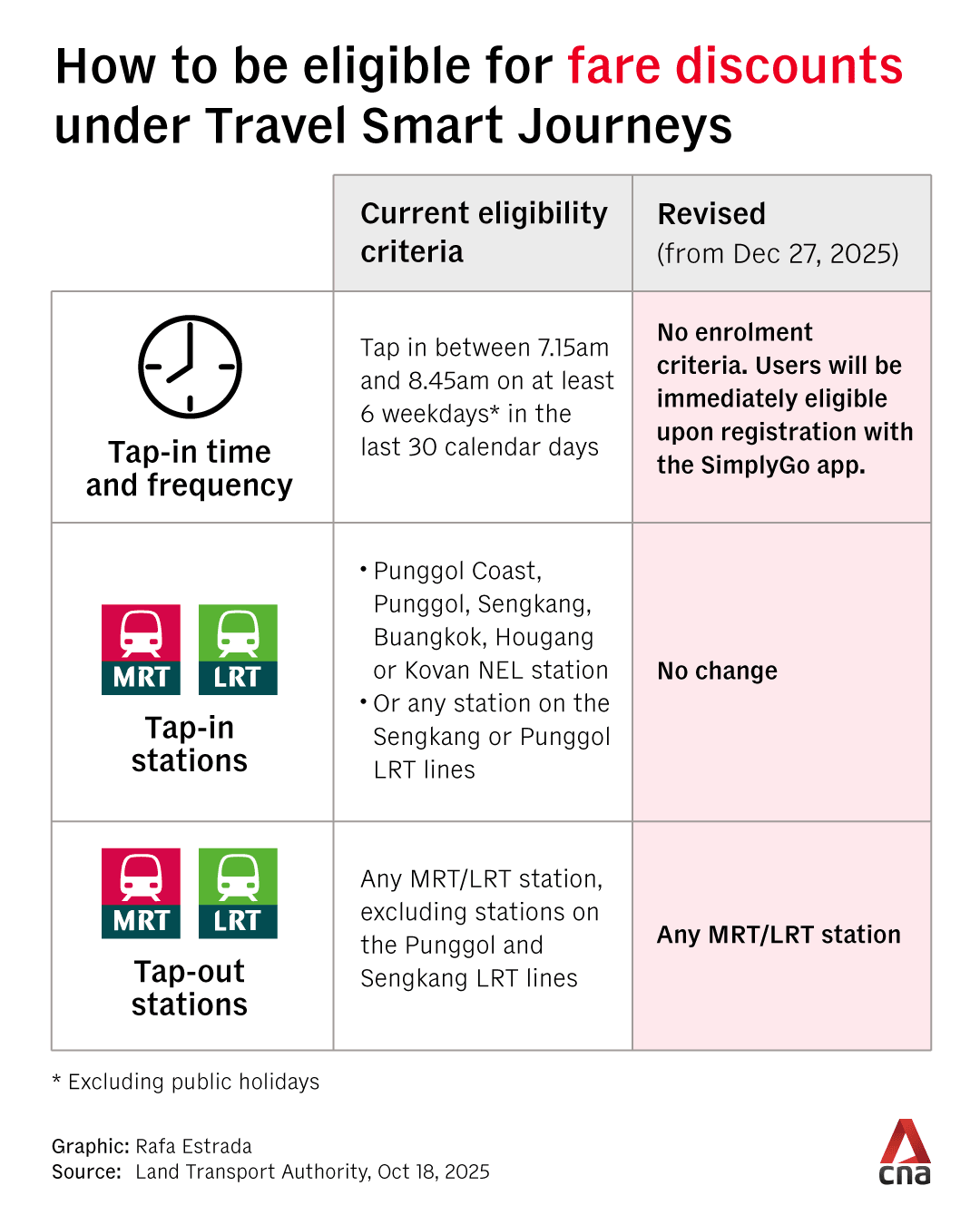
On why registration via the app is still required, LTA said its “system needs to track the commuter's trips across his or her whole journey to determine eligibility and calculate rewards for the complete journey before crediting them accordingly”.
Other changes from Dec 27 include moving the pre-peak eligibility window from before 7.15am to before 7.30am – to align with the timings under the free morning off-peak train rides.
Post-peak hour rewards will also be standardised at 80 per cent for travel between 9am to 9.45am, up from the current 40 per cent for those who tap in between 9.31am to 9.45am.
But journeys that start between 8.45am and 8.59am will no longer qualify for rewards.
The programme will continue to use a system where accumulated points can be redeemed in blocks of 500, which is equivalent to S$5. The credit will go into the passenger’s preferred travel card.
Lastly, the Travel Smart Journeys programme will be expanded to include five new city direct services – buses that ply express routes between housing estates and the city during peak hours on weekdays – in the northeastern region, from mid-December this year.
These new buses will connect residents in Hougang, Sengkang and Punggol towns to areas such as the Central Business District and Orchard.
More details will be announced in November, LTA said.
Existing services Service 43e and city direct services 654, 660, 660M, 666, 671, 672, 673, 675, 676, 677 and 678 continue to be eligible for rewards under the Travel Smart Journeys programme.
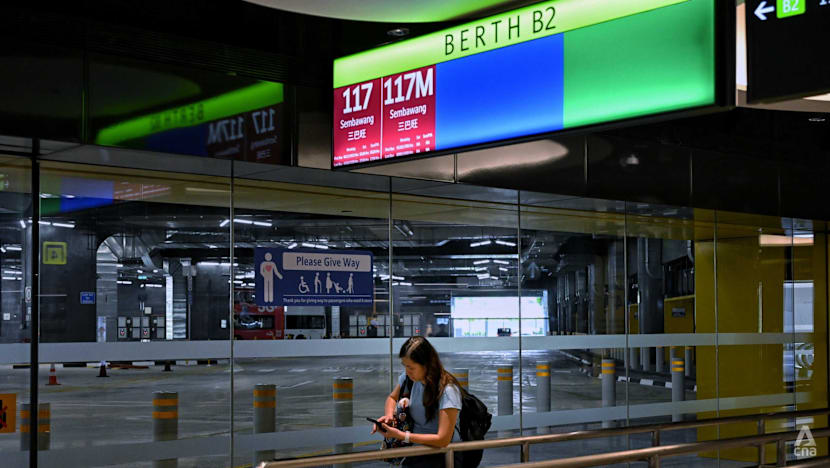 A commuter waits in line for bus service 117 at Punggol Coast Bus Interchange on Oct 18, 2025. (Photo: CNA/Wallace Woon)
A commuter waits in line for bus service 117 at Punggol Coast Bus Interchange on Oct 18, 2025. (Photo: CNA/Wallace Woon)
Noting that the average loading for city direct services is around 45 per cent of capacity for the morning peak period, LTA said existing services were adequate to accommodate more commuters who adjust their travel times.
Since the launch of the enhanced Travel Smart Journeys programme on Jan 2, LTA said it has received about 37,000 applications — of which about 11,000 participants met the eligibility criteria as of end-September.
As at the end of last month, about 8,000 commuters have either shifted their travel timings on NEL or switched to taking a city direct service at least once since the enhanced programme was launched.
Of these, around 23 per cent shifted their travel on the NEL to before 7.15am, while 30 per cent shifted to the post-peak timing of between 8.45am to 9.45am. Another 28 per cent adopted a combination of pre- and post-peak travel.
In addition, 6 per cent switched to an eligible bus service, while 13 per cent used both alternatives - adjusting their NEL travel to off-peak periods, and switching to eligible bus services.
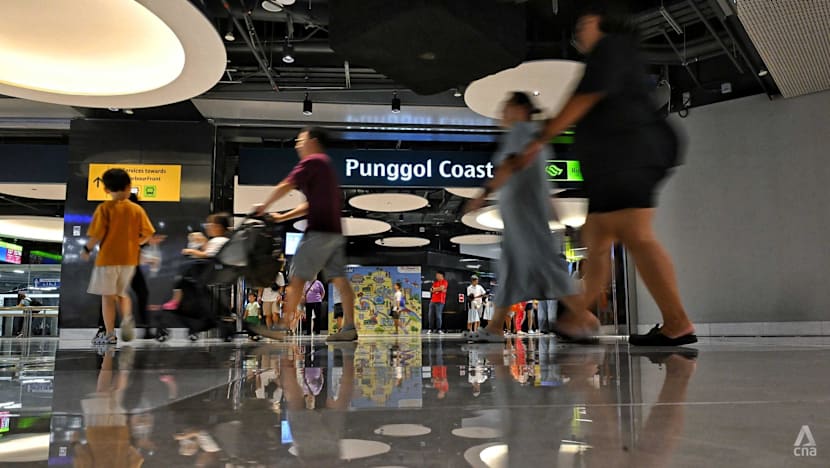 Commuters walk past the sign of the newly opened Punggol Coast Bus Interchange on Oct 18, 2025 (Photo: CNA/Wallace Woon)
Commuters walk past the sign of the newly opened Punggol Coast Bus Interchange on Oct 18, 2025 (Photo: CNA/Wallace Woon)
Mr Siow said initiatives to nudge passengers to explore different travel methods during peak hours was also about improving the overall resilience of the country’s train network.
“If … you're in a city with a mature rail network, if there's a disruption, most passengers can get on to another part of the network.”
But Singapore is still building up its train network, with certain parts that are “not quite as connected” yet, he added.
For example along the NEL, stations between Punggol Coast and Kovan are not connected to any other train line at the moment.
“So, if there is a disruption, it's a bit harder to manage … and it will be the case until the Cross Island Line is completed in five years’ time,” he said.


